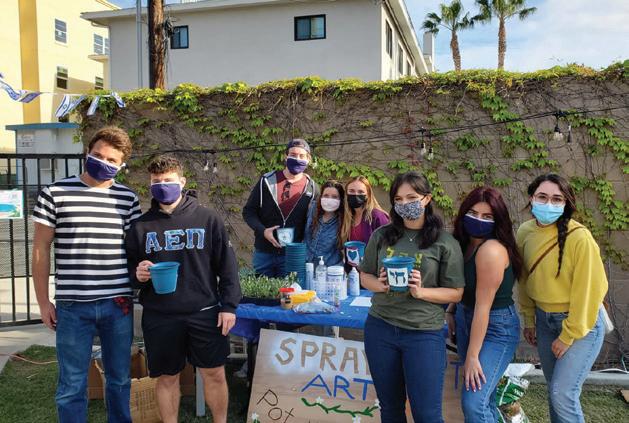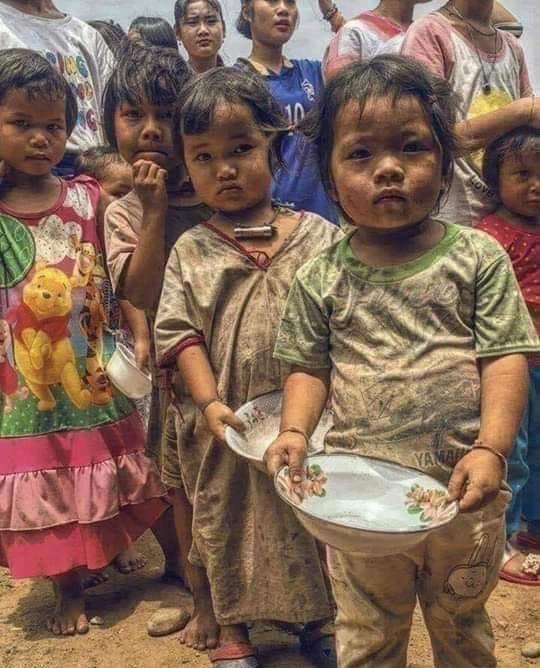
6 minute read
Prayers & Passages
The Unknown Road
On the upcoming holiday of Shavuot, we will celebrate the receiving of our Torah.
Advertisement
On this holiday, it is customary to read from The Book of Ruth, one of the five Megillot read during various holidays during the year.
In The Book of Ruth we read how Naomi, her husband and two sons relocated to the land of Moab as a result of the famine that plagued them in Bethlehem. A decade later, with all three men dead, Naomi prepares to return home. She begins her journey accompanied by her two widowed daughtersin-law: Ruth and Orpah. Upon reaching a certain juncture, she tells them that rather than follow her to the land of Judah, they should instead return to their mothers’ homes and find new husbands.
Although both young women at first refuse, eventually Orpah acquiesces and returns to her home. Ruth, however, remains steadfast, responding with some of the most famous words in our Biblical Canon: “Do not urge me to leave you or turn back from you, for wherever you go, I will go; wherever you stay, I will stay, your people shall be my people and your God my God. Where you die, I will die, and there I will be buried. Thus and more may the Lord do to me if anything but death parts me from you.” (Ruth 1:16-17)
The story has a happy ending. The devoted Ruth meets and marries the wealthy Boaz and gives birth to a son who will eventually become the grandfather of the great King David. Yet when she commits herself to following Naomi to a new and unfamiliar home, that happiness was far from a foregone conclusion. As she stood at that crossroad, Ruth faced a life-defining decision: return to the comfort of the familiar or take a chance and follow a new and completely unknown road. Just as the Israelites had chosen to accept and live by the Torah at Mount Sinai, Ruth followed her heart, choosing loyalty to not only her mother-in-law, but to the Jewish people and their God.
While we do not need to wait for a holiday to renew our commitment to Torah, Shavuot offers us an opportunity to recommit ourselves to the values espoused within its sacred texts. Like Ruth, we may at times find ourselves at a crossroads in terms of our own commitment to living a Jewish life. Do we remain solely on a secular path, or do we choose to incorporate Judaism and its core values — Torah, Worship and Acts of Lovingkindness — as an integral part of our daily lives? Will we open our eyes to the riches the Torah offers us, which may help guide us through the myriad of challenges that life hurls at us? Will we offer our voices and hearts in prayer? Will we commit ourselves to acts of lovingkindness, serving others who may be desperately in need of our help?
May the gift of Torah find its way into your hearts and provide you with sustenance, hope and blessings. Amen.
RABBI-CANTOR CHERI WEISS IS THE FOUNDER AND SPIRITUAL LEADER OF THE SAN DIEGO OUTREACH SYNAGOGUE, A POST-DENOMINATIONAL CONGREGATION THAT WELCOMES PEOPLE OF ALL AGES AND BACKGROUNDS INTERESTED IN EXPLORING A UNIQUE MIXTURE OF TRADITIONAL AND CONTEMPORARY JEWISH MUSIC, PRAYER AND LEARNING. SHE IS ALSO THE FOUNDER AND DIRECTOR OF THE SAN DIEGO JEWISH COMMUNITY CHOIR, WHICH EXPLORES A WIDE VARIETY OF JEWISH MUSIC INCLUDING LITURGICAL PRAYERS, ISRAELI FAVORITES, MUSICAL THEATER AND OTHER POPULAR SONGS BY JEWISH COMPOSERS AND MUCH MORE.

Make a difference today!
www.hillelsd.org/donate
Hillel of San Diego inspires the next generation of our Jewish community to make an enduring commitment to Jewish life, learning, and Israel.
We provide a home away from home to thousands of emerging adults at UC San Diego, San Diego State University, Cal State San Marcos, and University of San Diego.
Through Hillel you can invest in our collective future!


THE CHILDREN OF BURMA ACHE

In Thailand, a makeshift camp sits along the riverbank, water separating it from its scorched-by-battle Burmese neighbor.
Guarded by Thai soldiers, scorpions afoot and occasionally fired upon by the Burmese military across the river, barefoot toddlers with protruding bellies chew on leaves. Some of these children are ravaged by kwashiorkor protein malnutrition. Their rounded tummies disguise advanced starvation.
In 2021, kwashiorkor and other forms of undernourishment remain the disgrace of human failings. We can do better.
Little Mercies nonprofit provides food and essentials to three schools in Thailand for Burmese refugees. Many of our students are orphans, rescued from a hideous array of trafficking realities. Others, more fortunate, crossed borders with their families. Our schools enable the elusive and often unattainable: an education.
Parents of non-orphaned students make little money, just enough for provisions. Johny, our Thai partner, emigrated from Burma as an unaccompanied minor in the ’90s and runs a business in Chiang Mai. Johny founded and funds these three remarkable schools. With dirt floors and dedicated teachers, our schools have educated and housed hundreds of children over the past decade. The work of Johny and others is an effort helping lift those who, given a chance, are eagerly lifting themselves.
Our students and families remain nourished, yet hundreds of newly displaced Burmese refugees are at exceptional risk.
“Babies and pregnant women are especially threatened. Mosquitos biting — dangerous snakes amongst the people. We need hammocks to keep babies safer in the trees,” Johny said, referring to the refugees now living along the river. No one can tackle this alone, and yet Johny, with little but determined assistance, delivers the minimal aid Little Mercies and the few other donors can provide.
Civil war haunts Burma. British Colonial dominance ended in 1948, shortly to be replaced by military rule. Renamed Myanmar by the Tatmadaw military in 1989, many continue to use “Burma” and “Myanmar” interchangeably. Notably, our refugees overwhelmingly call themselves Burmese. With ongoing ethnic strife and reported human rights violations throughout its history, democracy ignited in the 2010s with the eventual election of Aung San Suu Kyi. She won again in November 2020 to be ousted by a military coup earlier this year. Many Burmese citizens, minority and Bamar alike, have protested the loss of freedoms and democracy, and many have lost their lives. And here we are now: an ancient, recurring story of refugees fleeing violence into neighboring nations. Of the multitude of displaced lives from the seven main ethnic states of Burma, the Karen Hill tribe has been largely driven into Thailand, many concentrated in the riverbank camp, scratching dirt for shelter and leaves for bedding. Thriving mosquitos bring the certitude of malaria and other infections. There is nothing to cook until someone, somewhere, thinks of them and donates money, so warm rice fills the void.
Whatever challenges we face in our lives, we are not monitoring the ground for poisonous centipedes while watching our babies sleep on dirt. Orphaned and suffering children create an obligation for the global soul. The Covid-19 pandemic taught us the entwined nature of our lives, amplifying the consequences of inaction. When we can no longer belong to our homeland, we belong to one another. The war-fleeing children of Burma need us, and we must respond. Join in answering the call.
PHOTO CREDIT: KAREN UNITY HOPE NETWORK







